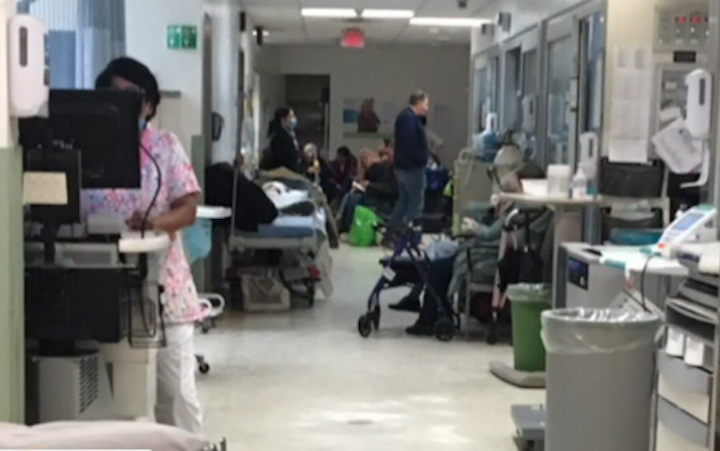The Saskatchewan and federal governments singed a new deal on May 13, which will see hundreds of millions of dollars invested in a variety of health care initiatives over the next decade.

Areas being targeted in the first year include emergency wait times, palliative care and mental health.
Saskatchewan is committed to approximately $158 million in targeted funding over the next five years. The federal government is putting forward a close to $350 million commitment over the next decade.
Areas that the money will be focused on include improving access to palliative and end-of-life care, expanding internet options for certain therapy services, improving mental health supports for children and establishing Community Care Centres.
READ MORE: Saskatchewan spending record $5.36B on health care
The goal of these centres is to shift the delivery of services away from hospitals and into a community setting. An area where these centres may prove useful are emergency wait times.
“Emergency wait times, and also over capacity in hospitals. If we get to the core of the program early in many instances, it’s not only going to provide better care to citizens, it’s going to prevent stress on the larger facilities,” Health Minister Jim Reiter said.

Get weekly health news
The province has an ambitious emergency wait time target, a 35 per cent reduction of 2013-14 wait times, by March 31, 2019. Based on data from the Canadian Institute for Health Information (CIHI), it appears there is still work to do on this front.
For hospitals that reported data to CIHI, Regina had the highest maximum wait for emergency of patients to have their initial physician assessment. Ninety per cent saw a physician within 4.1 hours in 2016-17. That figure was four hours in 2013-14.
Reiter said it is too early to announce exactly when the Community Care Centres will come online, but said it is safe to say larger centres with higher demand will be looked at first.
Among the main priorities: treating people in situations that don’t necessarily have to go to the emergency room.
READ MORE: Estevan hospital wait times rise due to physician shortage
“Secondly, if we can nip problems in the bud, if people can get the right care ahead of time, it prevents those emergency services being needed,” Reiter said.
Another item that may help emergency wait times are mental health investments. Targeted areas include youth-focused training programs for physicians and improving support for youth and families through increased capacity for diagnosis and treatment.
“Furthering the training for health care professionals probably isn’t something as visible but what they will see is there will be more staff hired. We need to do a better job shortening the waitlist for mental health,” Reiter said.
The minister said that there will be further announcements on these items once all the details are finalized.









Comments